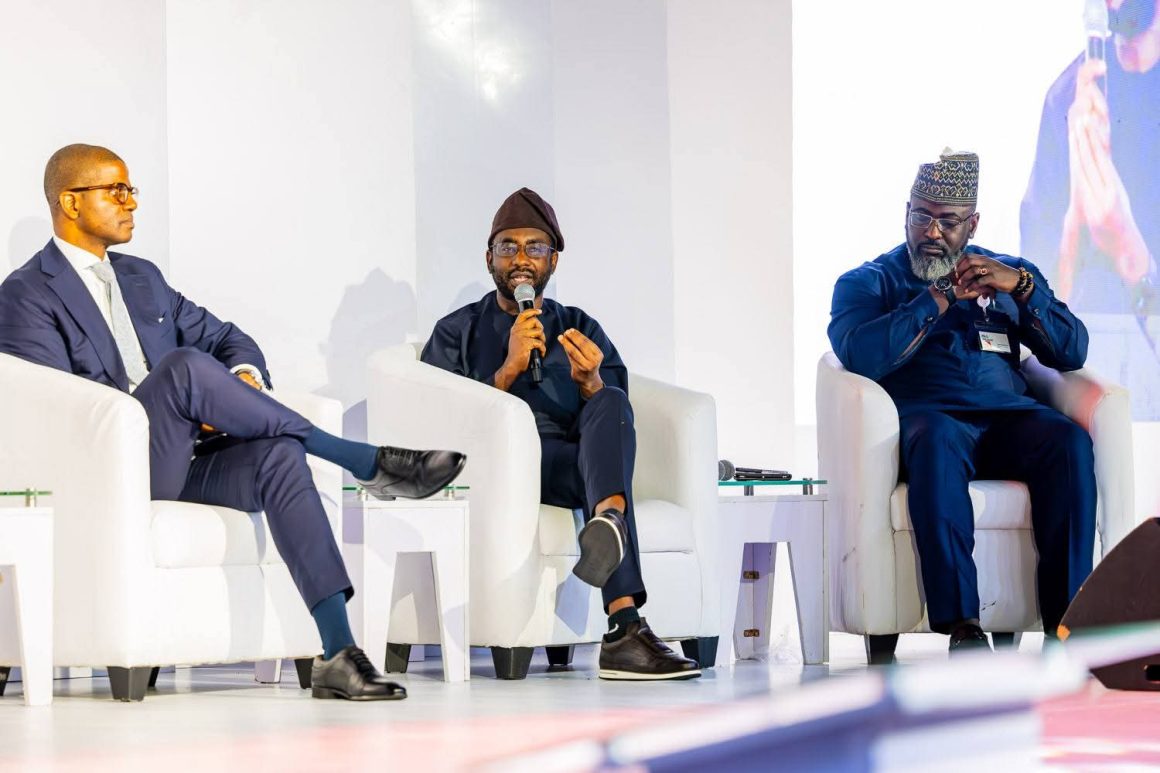Kashifu Inuwa, the Director General of the National Information Technology Development Agency (NITDA), has urged business executives to stop seeing artificial intelligence (AI) as a threat to human jobs and instead embrace it as a cooperative partner in fostering innovation and economic growth.
Inuwa questioned the traditional view of AI as just an automation tool during a high-level panel discussion titled “Builders of the New Nigeria – Stories of Scale, Grit, and Innovation” at the BusinessDay CEO Forum Nigeria in Lagos. Inuwa urged CEOs and business leaders to see AI as a strategic ally and thought partner in coming up with creative ideas, finding new business models, and gaining a competitive edge in a world economy that is changing quickly.
He encouraged company executives to incorporate AI into their operations not as a substitute for human input but rather as a collaborator that can unleash new levels of creativity and productivity. “I see artificial intelligence not just as a tool, but as a thought partner,” he said.
He clarified that although artificial intelligence (AI) can perform better than humans in some tasks, its main purpose should not be to replace human labor. Rather, it has the potential to replace certain procedures and abilities that are currently used to complete everyday tasks. He asserts that in order to make this change, company executives must re-establish themselves at the forefront of this technological advancement.
The secret is to put yourself at the center of this partnership. AI can perform better than humans in many tasks, but it will not take your place or mine. AI will take the place of the abilities and procedures we currently use to carry out our jobs.
Inuwa emphasized that in order to effectively collaborate with intelligent systems in an AI-driven world, CEOs and other decision-makers must proactively rethink their roles.
In order to stay successful and relevant in the digital age, he emphasized the significance of learning how to work with AI rather than against it.
According to Inuwa, companies should approach AI systems by giving them distinct roles or personas depending on the context in which they are being used if they want to get the most out of AI. He claimed that giving AI a defined function, whether as a virtual advisor, lawyer, doctor, or co-founder, makes its interactions with people more meaningful and effective.
Although he expressed optimism regarding AI’s potential, Inuwa issued a warning that caution must be exercised when dealing with AI systems. He advised business executives to treat AI as the “worst version” of itself until it demonstrates otherwise, cautioning them not to assume AI is always correct or moral by default.
“The government’s role becomes crucial at this point. We must establish policy labs as regulators so that we can test AI technologies in secure, regulated settings. We need to thoroughly assess them to make sure they are trustworthy, moral, and safe,” he continued.
NITDA has embraced a progressive regulatory approach that emphasizes cooperation, experimentation, and co-creation, he said. The agency collaborates closely with innovators, startups, and the private sector to test new technologies like artificial intelligence (AI) rather than enforcing stringent regulations out of fear or uncertainty.
Inuwa claims that the knowledge gathered from these cooperative projects aids government organizations such as NITDA in establishing precise, fact-based standards and regulations that promote innovation and protect the public interest.
This is how we handle regulation. We work with the private sector to experiment, learn, and develop together instead of hastily enacting regulations out of fear. After co-creating solutions, we apply the knowledge gained from these experiments to set precise standards that will guide future frameworks, policies, and rules,” he continued.
“Nigeria is establishing a precedent for striking a balance between technological innovation and societal responsibility, allowing businesses to flourish while guaranteeing that new technologies benefit the wider society,” Inuwa stated.
He concluded, “Our goal is to establish an atmosphere in which companies can innovate responsibly while guaranteeing that society as a whole benefits from these new technologies.”
A significant number of business executives, entrepreneurs, legislators, and thought leaders from all over the nation attended the BusinessDay CEO Forum Nigeria. In Nigeria’s difficult economic environment, the event provided a forum for impactful discussions on growing enterprises, fostering resilience, and promoting sustainable innovation.
Panelists talked about business growth tactics, shared personal tales of tenacity, and examined how technologies like artificial intelligence (AI), digital payments, and data analytics are influencing Nigeria’s economy going forward.

46 Views


Leave a Reply